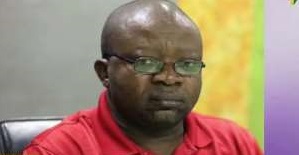Political scientist and Head of the Centre for European Studies (University of Ghana), Dr. Asah Asante, has raised serious concerns over the future of Ghana’s cocoa industry, warning that illegal mining activities (galamsey), uncompetitive cocoa prices, and a growing shift by farmers to alternative crops are posing a significant threat to the sector’s survival.
Speaking in an interview on Joy News, Dr. Asante stressed that cocoa remains central to Ghana’s economy but lamented that “recent developments show people are moving away from producing cocoa into cultivating land for rubber.”
“It’s not a bad idea,” he noted, “but then what happens to the cocoa industry? Their argument is that galamsey is taking a better part of the production and it’s undermining their efforts. What has government done about this?”
Dr. Asante said the actions of illegal miners are not only diminishing arable lands but also destroying water bodies crucial for cocoa farming. He further warned that Ghana’s international cocoa reputation is at risk due to environmental damage.
“People talk about the fact that even the water they need for cultivation is now a problem. And more often than not, they also talk about the threat from the EU and other buyers who say they are seeing particles of heavy metals in our cocoa,” he explained. “Galamsey should be a serious fight if we really want to sustain cocoa and, for that matter, this country’s development.”
Dr. Asante urged the current government to act decisively, noting that “the past government failed abysmally on this matter.” He added, “I urge this government to fight on because this is an industry that has sustained, and continues to sustain, us.”
Recounting his personal connection to the industry, he said, “I have been on cocoa farms since I was born because my parents were cocoa farmers, so I know what they are talking about.”
Touching on Ghana’s Livelihood Empowerment against Poverty (LEAP) programme, Dr. Asante described the current support structure as insufficient.
“This is a programme that gives somebody GHS 300 every two months, it’s a joke,” he asserted. “Even a day, GHS 300 might not be enough depending on the household’s needs.”
He recommended a shift toward more sustainable interventions, such as animal rearing and aquaculture, noting “I know some assemblies are helping people breed fish, which is commendable. But when it gets to the marketing end, it becomes a problem. Who buys the fish?” he asked.
Dr. Asah Asante emphasized the need for discipline in public spending and stronger anti-corruption measures, emphasizing “Transparency International told us that over $3 billion slipped through our fingers due to corruption. If these resources are redirected to support programs like LEAP, we can fight poverty head-on.”
“Poverty is endemic in this country and is the enemy of our democracy. If we want to maintain and sustain this democracy, we must deal with poverty more aggressively,” he concluded.
Read Also: Government Targets Strategic Partnership with GCF to Scale Up Climate Action

























